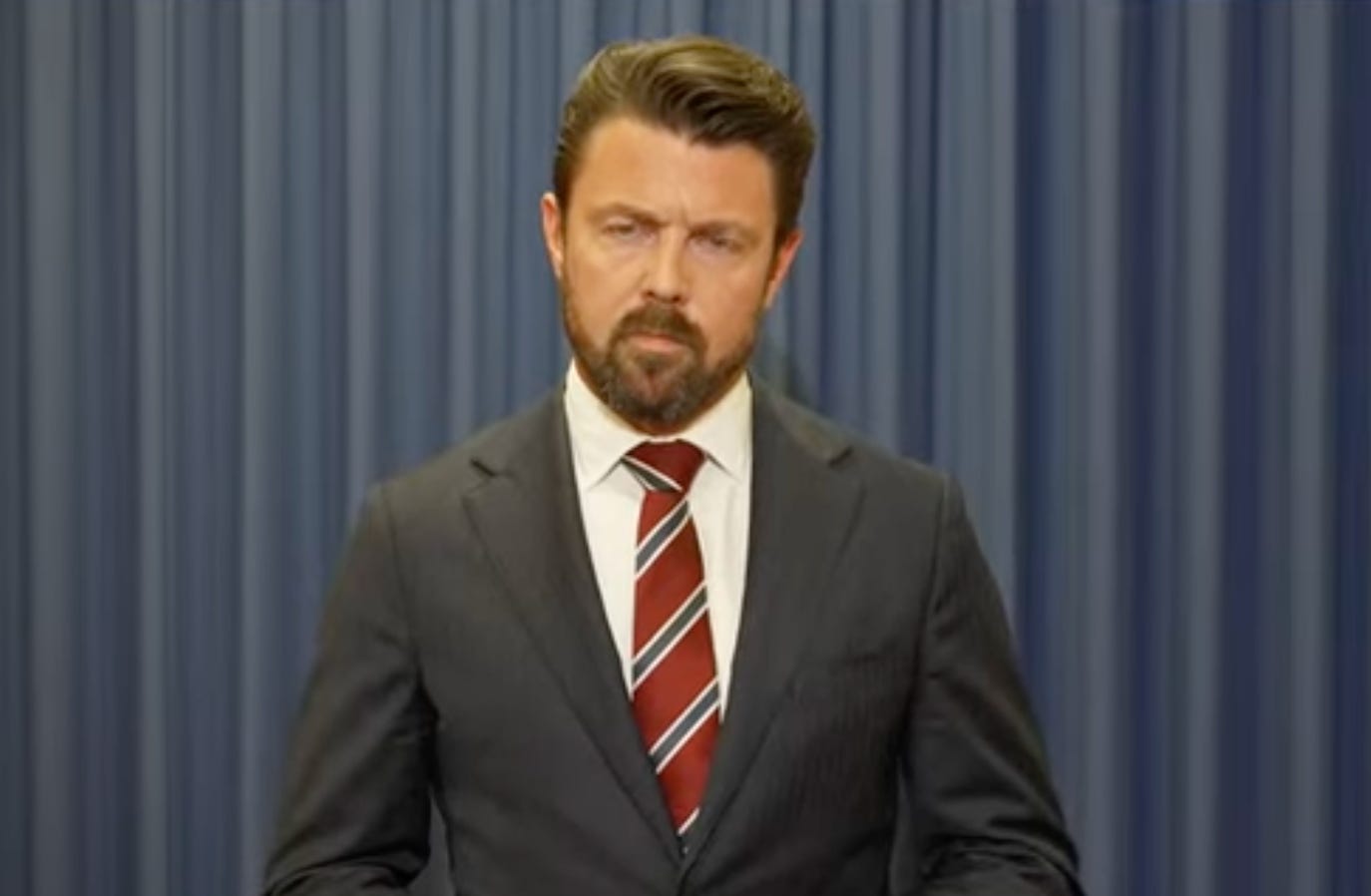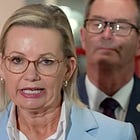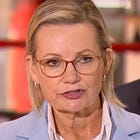Coalition seeks Gaza visa review as Burke defends "most scrutinised" refugee checks
This piece is freely available to read. Become a paid subscriber today and help keep Mencari News financially afloat so that we can continue to pay our writers for their insight and expertise.
Today’s Article is brought to you by Empower your podcasting vision with a suite of creative solutions at your fingertips.
Shadow Home Affairs Minister Jono Duniam called Friday for Australian visa holders from Gaza to be reassessed following the Middle East ceasefire, while Home Affairs Minister Tony Burke defended the security vetting process as the most rigorous ever applied to any refugee group entering Australia.
Australia faces renewed political debate over humanitarian visa policy as roughly 600 to 700 people from Gaza remain on the government’s caseload awaiting entry, with the opposition arguing changed circumstances following a recent ceasefire warrant fresh security assessments.
In his first major policy statements since being appointed Shadow Home Affairs Minister earlier this week, Liberal Senator Jono Duniam told ABC’s Afternoon Briefing that the “historic” peace deal in the Middle East fundamentally alters the context for visa decisions made during active conflict.
“We’ve had a peace deal signed in the Middle East, and this is historic,” Duniam said. “That changes things, and I think we do need to take that into account.”
The comments came hours after Home Affairs Minister Tony Burke used a National Press Club address to defend the government’s handling of Gaza-origin visa applications, emphasizing that applicants face unprecedented levels of security screening before being granted entry to Australia.
“There has never been that I’m aware of a group that has been so heavily scrutinised,” Burke told the press club. “They didn’t just go through our own checks. If they went through the Rafa crossing, they also... The Rafa crossing is controlled by Israel and Egypt. So you’ve got a cumulative impact of the number of checks that have happened with respect to these individuals.”
Truth matters. Quality journalism costs.
Your subscription to Mencari directly funds the investigative reporting our democracy needs. For less than a coffee per week, you enable our journalists to uncover stories that powerful interests would rather keep hidden. There is no corporate influence involved. No compromises. Just honest journalism when we need it most.
Not ready to be paid subscribe, but appreciate the newsletter ? Grab us a beer or snag the exclusive ad spot at the top of next week's newsletter.
Burke confirmed that between 600 and 700 people from Gaza currently remain on the government’s visa caseload. Most have already been granted visas but have been unable to leave Gaza due to border closures and conflict conditions. With the recent ceasefire opening potential travel corridors, these visa holders may now be able to reach Australia.
The political divide over the issue reflects broader tensions about how Australia balances humanitarian obligations against security concerns and how changing conflict dynamics should influence existing visa decisions.
Duniam stopped short of calling for visas to be revoked outright, acknowledging the complexity of Gaza’s security situation even after the ceasefire. He noted reports of retribution killings by Hamas following the peace agreement, which may have made the territory more dangerous for some civilians.
“I saw that footage as well, and it is terribly distressing to see,” Duniam said of Hamas execution videos. “And that is an element, of course, the government would need to consider. And we do want to ensure that innocent civilians are protected from harm.”
However, he maintained that the ceasefire represents a “new consideration” that should prompt the government to reassess visa decisions made during active warfare.
“I think the Minister and the Government are privy to more information,” Duniam said. “But again, without wanting to over-securitise the debate around immigration, Australians deserve to know that the Government is putting in place robust measures around anyone that comes to this country via humanitarian means or otherwise.”
The shadow minister’s call for “transparency” around security vetting processes echoes concerns raised by National Party Senate Leader Bridget McKenzie, who told ABC’s Afternoon Briefing that Australians deserve assurance that Hamas sympathizers or collaborators are not being granted entry.
“I want to be assured that we are not bringing into this country from this war-torn area Hamas sympathisers or collaborators,” McKenzie said. “That’s a pretty simple request.”
Assistant Minister for Citizenship, Customs and Multicultural Affairs Julian Hill accused the opposition of “spreading lies and half-truths” and creating “fears, smears, innuendos” about the security screening process.
“If the opposition, Senator Duniam or any of them, don’t have confidence in our security agencies to do their job, the same people, the same agencies who did the same job when they were in government, then they should just say so,” Hill said during the panel discussion.
Hill clarified one rumor circulating in opposition circles and some media outlets, stating categorically that Australia is not on the list of countries considering resettlement of Palestinians being released from Israeli detention facilities as part of prisoner exchanges.
“There are a number of Palestinians being released from Israeli jails and there is a list of countries who are looking at resettling those people. Australia is not on that list,” Hill said. “So if that’s a reassurance you want, Bridget, you can stop asking the question and spreading the smear.”
Burke outlined the multi-layered security process applied to Gaza visa applicants during his press club appearance. All applicants undergo screening by the Australian Security Intelligence Organisation, checks against the government’s movement alert list, and for those who departed through the Rafa crossing, additional vetting by Israeli and Egyptian border authorities.
“The quality of the information that we have is used. We take our responsibilities seriously,” Burke said. “And where somebody has applied and we’re not sure, I don’t issue a visa. I don’t say, oh, if it’s not a no, then I’ll just go ahead. If we’re not sure, if we’re cautious, I always err on the side of caution.”
Hill provided additional context on rejection rates, noting that approximately 70 percent of Gaza visa applications are currently being denied — a significantly higher refusal rate than most other refugee cohorts.
“Seven out of ten, I think, in the order at the moment of visa applications for people from Gaza are rejected,” Hill said. “They are the most scrutinised group of such people that we’ve ever had here.”
The vast majority of approved applications involve people with close family members already in Australia, according to Hill, who said he recently met with Gaza-origin families in his electorate including both Christians and Muslims trying to reunite with relatives.
“They’ve got their mum here, but their dad’s holed up or vice versa,” Hill said. “So most of these are about trying to get families back together.”
Burke used his press club speech to share a personal account of meeting a mother and daughter from Gaza who spent 18 months hiding in a church before reaching Australia. The minister said he had spoken with them via video call before taking the Home Affairs portfolio and met them at the airport when they arrived in Sydney.
“I knew that they had spent 18 months in fear of what might happen with respect to the war and the fighting from the Israeli Defence Force. And they’d spent about a decade before that living in fear of Hamas,” Burke said. “They had no reason to know that there was a place where government would keep you safe.”
The church where the women sheltered was the same location where media reports documented a woman being shot by a sniper while using the toilet, with another woman shot while trying to help her.
“I was really pleased to be a minister in the sort of country where I could meet them at the airport. And I could say, you’re welcome here. You’re safe,” Burke said.
He also noted that he has provided similar assistance to Israelis seeking to reach Australia, saying he wondered “why it is that I haven’t been asked the question about returning for any of the Israelis who I’ve also provided these for.”
The minister emphasized that Australia’s humanitarian tradition has always involved some refugees returning home once conflicts end and safety is restored, while others choose to remain and become permanent residents.
“Whenever we have taken people on a humanitarian basis and the humanitarian need has gone away, some people have completely found a home in Australia, they are valued members of our community and they decide to stay,” Burke said. “Some people, the moment they know it’s safe in the place that all their memory and parents and grandparents live, they want to go back. And they do.”
McKenzie pointed out that Australia has accepted approximately five times more people from the Gaza region than comparable nations including the United States, United Kingdom, and Germany.
“We’re a very generous nation. And right now, we’ve actually taken in five times more people from this region than like countries, like the US, the UK, Germany and others,” McKenzie said.
The debate over Gaza visas comes as Burke outlined broader concerns about “securitising” immigration debates, arguing that while national security and immigration overlap in some areas, treating all immigration discussions through a security lens damages social cohesion.
Burke’s office indicated that security agencies continue to review all visa holders both before and after arrival in Australia, with monitoring processes continuing indefinitely for those who settle in the country.
The government has not indicated whether it will conduct any systematic reassessment of Gaza visa holders in light of the ceasefire, instead emphasizing that security reviews are ongoing regardless of external circumstances.
Sustaining Mencari Requires Your Support
Independent journalism costs money. Help us continue delivering in-depth investigations and unfiltered commentary on the world's real stories. Your financial contribution enables thorough investigative work and thoughtful analysis, all supported by a dedicated community committed to accuracy and transparency.
Subscribe today to unlock our full archive of investigative reporting and fearless analysis. Subscribing to independent media outlets represents more than just information consumption—it embodies a commitment to factual reporting.
As well as knowing you’re keeping Mencari (Australia) alive, you’ll also get:
Get breaking news AS IT HAPPENS - Gain instant access to our real-time coverage and analysis when major stories break, keeping you ahead of the curve
Unlock our COMPLETE content library - Enjoy unlimited access to every newsletter, podcast episode, and exclusive archive—all seamlessly available in your favorite podcast apps.
Join the conversation that matters - Be part of our vibrant community with full commenting privileges on all content, directly supporting The Evening Post (Australia)
Catch up on some of Mencari’s recent stories:
It only takes a minute to help us investigate fearlessly and expose lies and wrongdoing to hold power accountable. Thanks!








